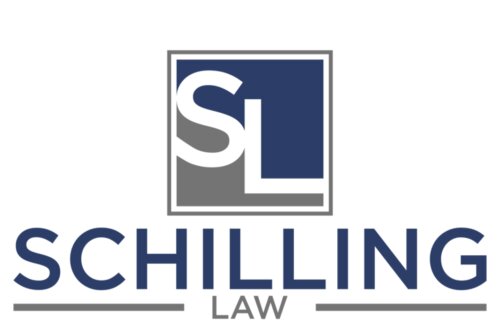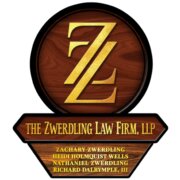Best Toxic Tort Lawyers in Kansas
Share your needs with us, get contacted by law firms.
Free. Takes 2 min.
Or refine your search by selecting a city:
List of the best lawyers in Kansas, United States
About Toxic Tort Law in Kansas, United States
Toxic tort law involves legal claims arising from exposure to dangerous chemicals or substances. In Kansas, these cases can result from exposure to asbestos, lead paint, pesticides, industrial chemicals, pharmaceutical drugs, or environmental pollutants. Toxic tort cases may affect individuals or entire communities, and often involve claims against product manufacturers, employers, landlords, or companies responsible for environmental contamination. Plaintiffs in these cases generally claim injuries, illnesses, or property damage as a result of exposure to toxic substances.
Why You May Need a Lawyer
You may need a lawyer in toxic tort cases for several reasons. Toxic tort claims are often complex, involving scientific evidence, expert testimony, and detailed investigations to establish liability and causation. Common situations that may require legal assistance include workplace exposure to hazardous chemicals, health problems related to water or soil contamination, illnesses caused by defective consumer products, or injuries resulting from environmental spills. An attorney can help gather evidence, navigate regulatory requirements, negotiate with insurance companies or responsible parties, and represent you in court if necessary.
Local Laws Overview
Kansas has specific legal standards and statutes that impact toxic tort cases. Plaintiffs in Kansas must generally prove that a toxic substance caused their injury and that the defendant was negligent, failed to warn, or violated safety regulations. The Kansas Product Liability Act governs claims against manufacturers and suppliers of defective products. Kansas law also incorporates federal environmental regulations, such as the Clean Air Act and Clean Water Act, which may provide additional grounds for liability in pollution cases. The state enforces statutes of limitations for personal injury and property damage claims, meaning you have a limited period to file a lawsuit after discovering harm. It's crucial to act promptly, as delay can bar your right to recover damages.
Frequently Asked Questions
What is a toxic tort?
A toxic tort is a legal claim for harm caused by exposure to a dangerous substance, such as chemicals, pharmaceuticals, or environmental pollutants. These cases seek compensation for personal injuries, illnesses, or property damage.
What are common types of toxic tort cases?
Common types include exposure to asbestos, lead paint, mold, pesticides, industrial contaminants, benzene, pharmaceutical drugs, hazardous waste, and contaminated drinking water.
How do I know if I have a toxic tort case in Kansas?
If you have suffered an injury, illness, or property damage due to exposure to a harmful substance, and believe another party is responsible, you may have a toxic tort case. Consulting a lawyer can help you assess your situation.
Who can be held liable in a Kansas toxic tort lawsuit?
Possible defendants may include manufacturers, suppliers, employers, landlords, environmental contractors, utility companies, or property owners depending on the source and circumstances of exposure.
What must I prove in a toxic tort case?
You must generally prove exposure to a specific toxic substance, the substance caused your injury or illness, and that the defendant was responsible due to negligence, product defect, or violation of safety laws.
How long do I have to file a toxic tort lawsuit in Kansas?
Kansas statutes of limitations restrict how long you have to file a claim after discovering injury or damage. The timeframe can vary depending on the type of claim, but often ranges from 2 to 3 years. Timely consultation with an attorney is important.
How are damages calculated in toxic tort cases?
Damages may include medical expenses, lost wages, pain and suffering, rehabilitation costs, property damage, and sometimes punitive damages if egregious misconduct is proven.
Do I need expert witnesses?
Expert witnesses are often essential in toxic tort cases to demonstrate the link between exposure and harm, as well as to establish regulatory violations or product defects.
Can multiple people file together in Kansas?
Yes, toxic tort cases may be handled as class actions or mass torts if multiple people are affected by the same exposure, streamlining legal proceedings and potentially strengthening your case.
What should I do if I suspect toxic exposure?
Seek medical attention immediately, document your symptoms and exposure, preserve any relevant materials, avoid further contact with the substance if possible, and consult a qualified attorney experienced in toxic tort law.
Additional Resources
If you need additional information or support regarding toxic tort cases in Kansas, consider reaching out to these resources:
- Kansas Department of Health and Environment - Provides information about environmental hazards and public health - United States Environmental Protection Agency (EPA) Region 7 - Oversees environmental issues in Kansas - Kansas Bar Association - Offers lawyer referral services and legal information - Local health departments - For reporting and investigating environmental or occupational exposures - Consumer Product Safety Commission - Handles product safety concerns - Kansas Legal Services - Provides assistance for those who cannot afford legal representation
Next Steps
If you believe you have a toxic tort claim in Kansas, take these steps to protect your legal rights:
1. Seek medical attention and follow your doctor's recommendations. 2. Start documenting all symptoms, medical visits, and possible exposures. 3. Collect any relevant evidence, such as product labels, environmental reports, or photographs. 4. Contact a Kansas-licensed attorney who specializes in toxic tort law to evaluate your case. 5. Be mindful of filing deadlines and act promptly to avoid losing your right to seek compensation. 6. Utilize local and state agencies for environmental testing or investigation if needed. 7. Stay informed throughout the legal process and communicate regularly with your attorney regarding developments in your case.
A knowledgeable attorney can help you navigate the complexities of toxic tort law, protect your interests, and pursue fair compensation for your injuries or property loss.
Lawzana helps you find the best lawyers and law firms in Kansas through a curated and pre-screened list of qualified legal professionals. Our platform offers rankings and detailed profiles of attorneys and law firms, allowing you to compare based on practice areas, including Toxic Tort, experience, and client feedback.
Each profile includes a description of the firm's areas of practice, client reviews, team members and partners, year of establishment, spoken languages, office locations, contact information, social media presence, and any published articles or resources. Most firms on our platform speak English and are experienced in both local and international legal matters.
Get a quote from top-rated law firms in Kansas, United States — quickly, securely, and without unnecessary hassle.
Disclaimer:
The information provided on this page is for general informational purposes only and does not constitute legal advice. While we strive to ensure the accuracy and relevance of the content, legal information may change over time, and interpretations of the law can vary. You should always consult with a qualified legal professional for advice specific to your situation.
We disclaim all liability for actions taken or not taken based on the content of this page. If you believe any information is incorrect or outdated, please contact us, and we will review and update it where appropriate.
Browse toxic tort law firms by city in Kansas
Refine your search by selecting a city.














